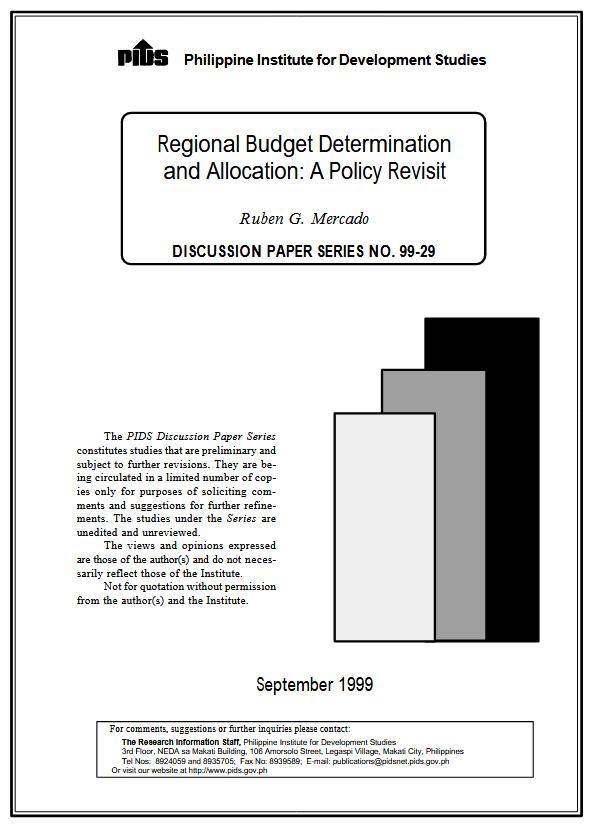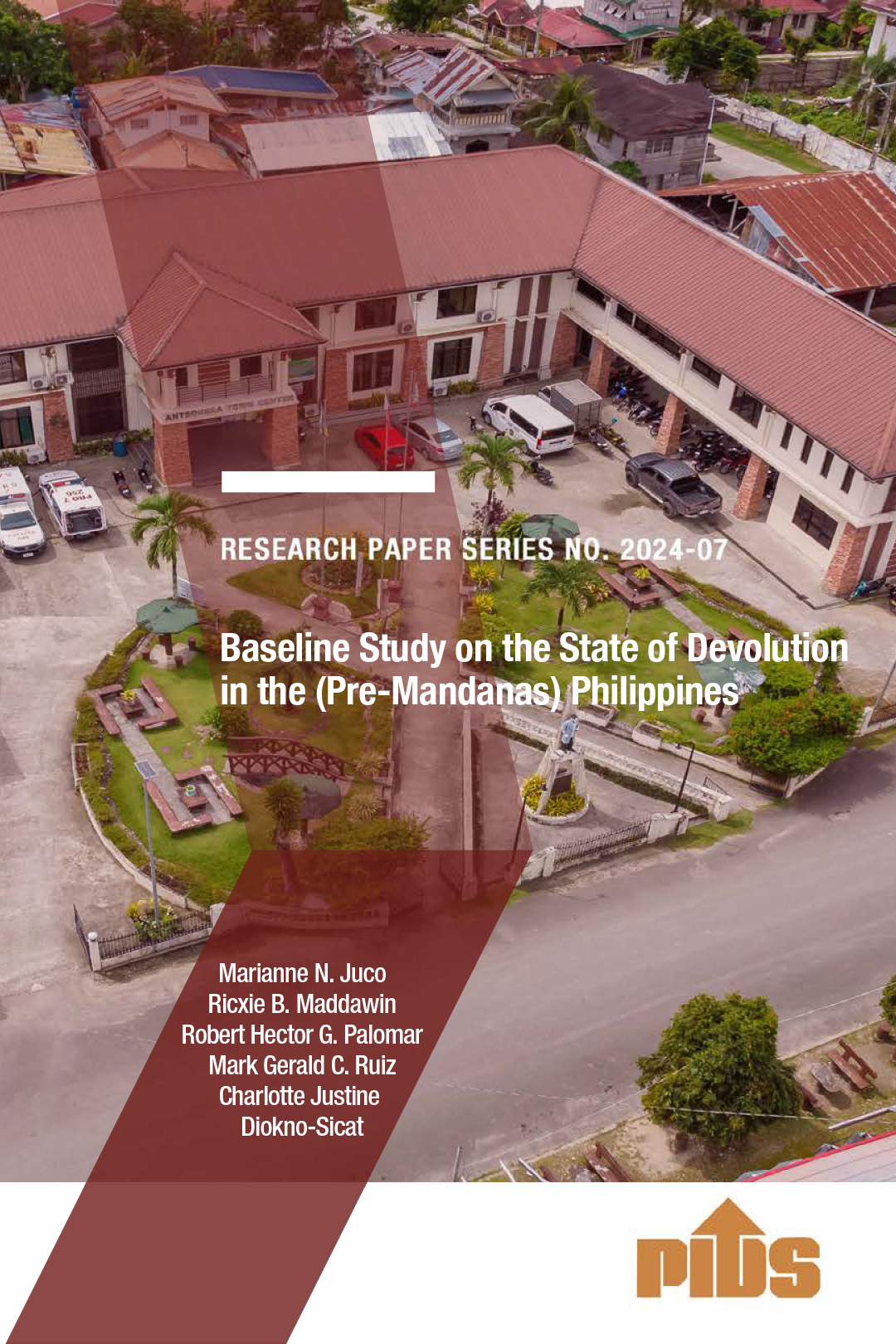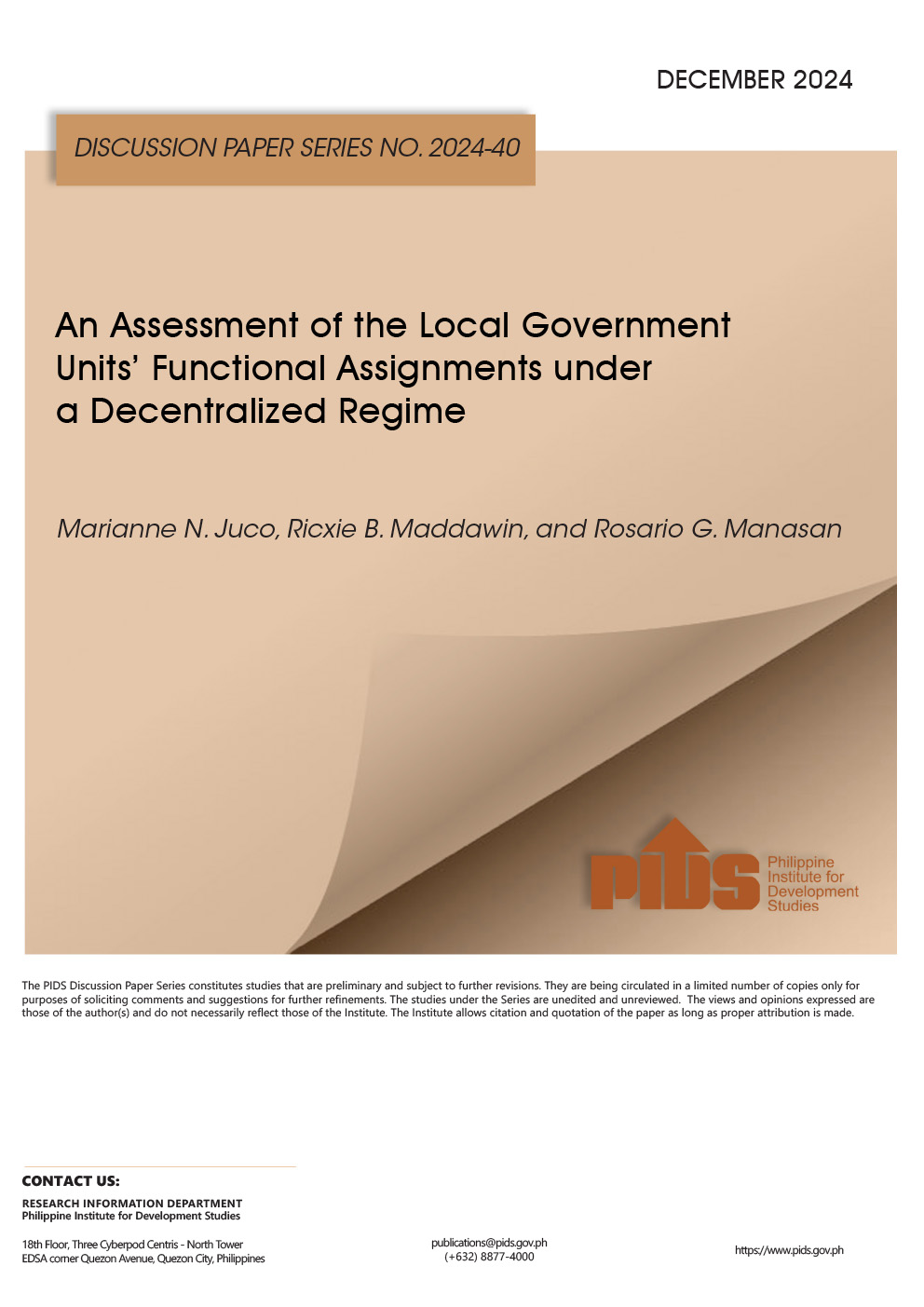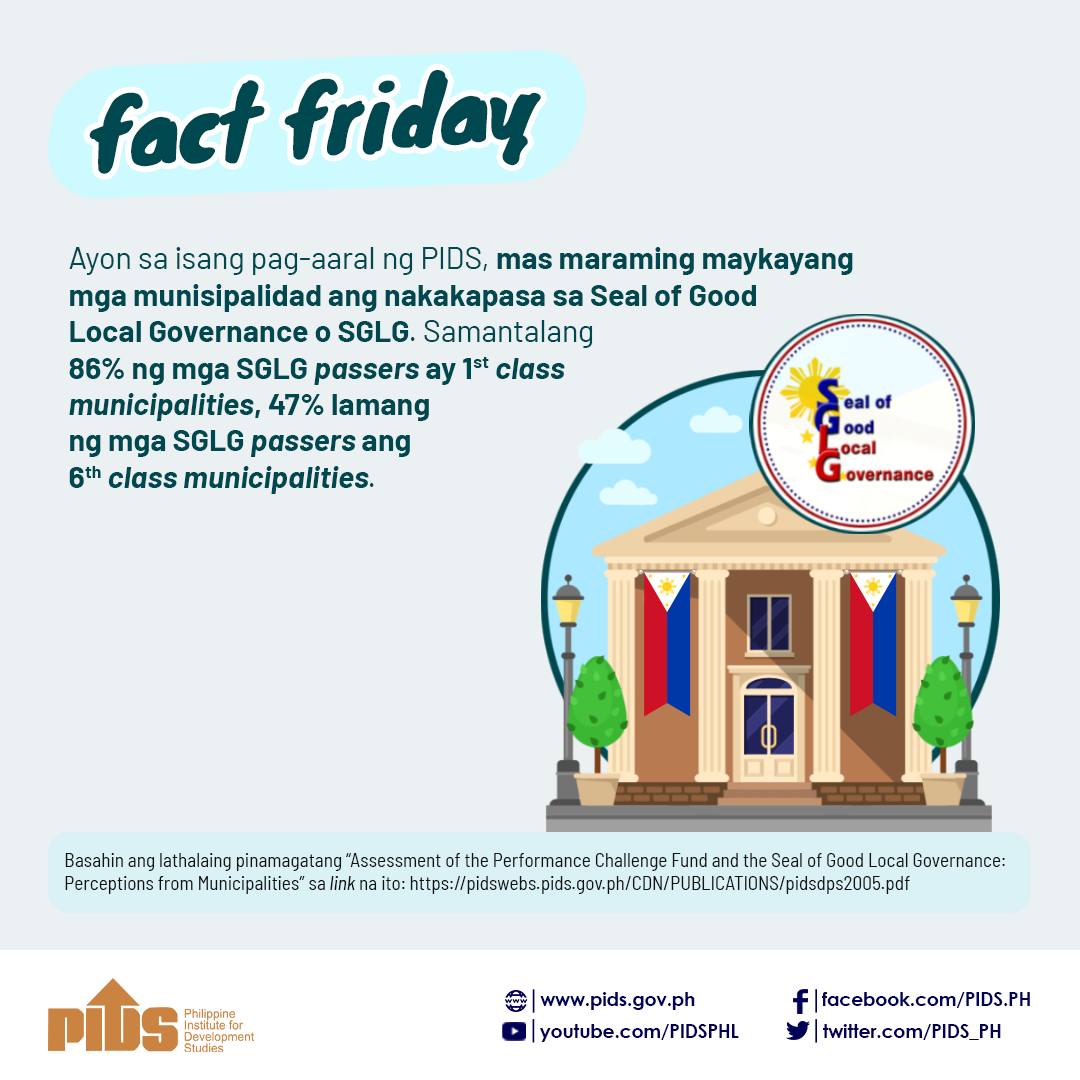National leadership over the past three decades has recognized regional development as an important policy thrust and strategy for national development. Hence, regional allocation becomes an integral part in the national government budgeting system, which is aimed for greater efficiency and effectiveness. The practice of regional budgeting in the Philippines has started during the Marcos administration. Aquino government pursued a top-down bottom-up approach in the budgeting process. Ramos government continued the same approach but with less fervor. Regional development can become an approach to attain the goal of the national government given efficient resource utilization. To this end, this paper assesses regional budget allocation in terms of process and responsiveness to the diverse regional social/economic conditions. Policy recommendations ensue.
Citations
This publication has been cited 4 times
- Capuno, Joseph J., Thelma C. Manuel, and Ma. Bella T. Salvador. 2002. Fiscal tranfers, centrally-provided local public services and fiscal balance: Exploring alternative transfer formulas. UP School of Economics Discussion Papers 200204. University of the Philippines School of Economics.
- Lieberman, Samuel S., Joseph J. Capuno, and Hoang Van Minh. 2004. Health decentralization in East Asia: Some lessons from Indonesia, the Philippines, and Vietnam. UP School of Economics Discussion Papers 200408. University of the Philippines School of Economics.
- Miral, Romulo Jr. E.M.. 2017. Federalism: Prospects for the Philippines. Discussion Papers DP 2017-29. Philippine Institute for Development Studies.
- Palma, Alexander Michael G.. 2001. Assessment of the absorptive capacity for government and donor funding: The case of the DOH. Discussion Papers DP 2001-04. Philippine Institute for Development Studies.













